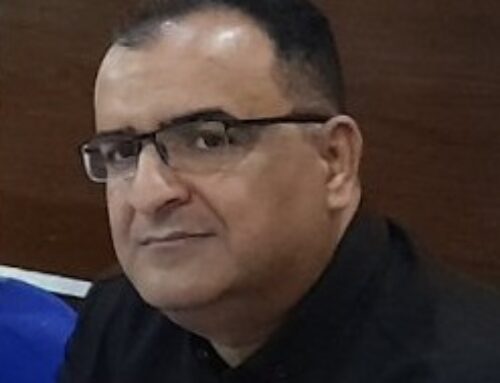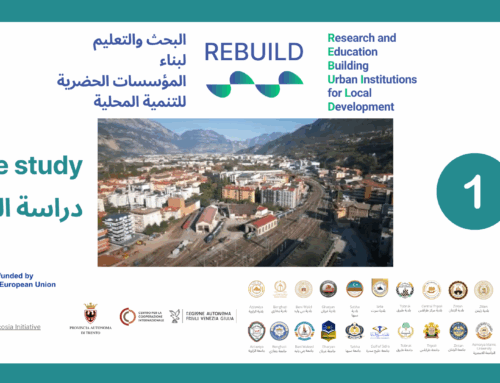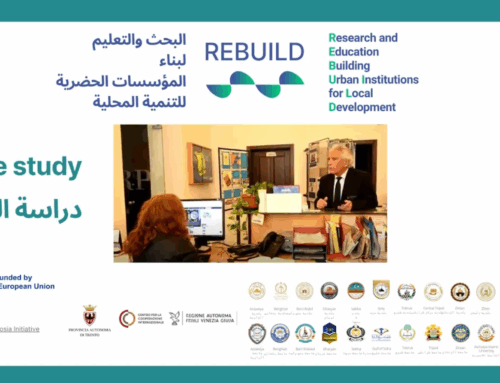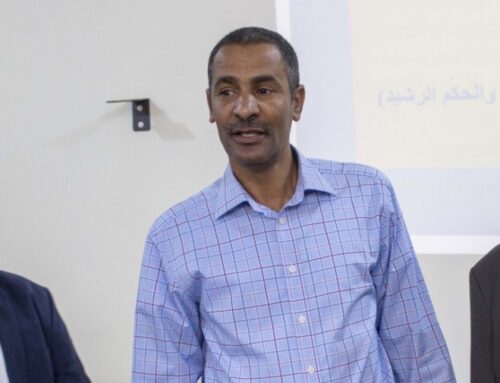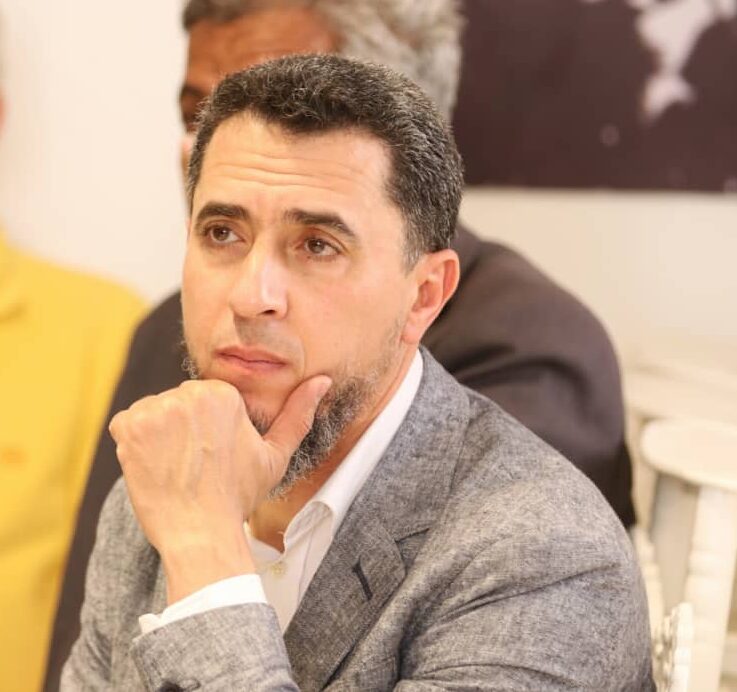 Procurement planning is a critical component of effective public administration, especially within the context of municipalities. In Libya, where local governance structures are evolving and facing numerous challenges, acquiring the necessary skills in procurement planning is essential for ensuring transparency, efficiency, and accountability in the use of public resources. This article outlines the key skills that municipal officials in Libya should develop to enhance their procurement processes.
Procurement planning is a critical component of effective public administration, especially within the context of municipalities. In Libya, where local governance structures are evolving and facing numerous challenges, acquiring the necessary skills in procurement planning is essential for ensuring transparency, efficiency, and accountability in the use of public resources. This article outlines the key skills that municipal officials in Libya should develop to enhance their procurement processes.
Understanding Procurement Processes
The first skill that municipal officials must acquire is a comprehensive understanding of procurement processes. This includes knowledge of the legal frameworks governing procurement in Libya, such as the Public Procurement Law and relevant regulations. Officials should be trained to navigate these laws effectively to ensure compliance and avoid legal pitfalls. Familiarity with international best practices can also provide valuable insights into efficient procurement strategies.
Strategic Planning and Needs Assessment
Another vital skill is strategic planning combined with needs assessment. Municipalities must be able to identify their specific needs accurately before initiating procurement activities. This involves engaging with various stakeholders, including community members, to gather input on priorities and requirements. Training in strategic planning methodologies will enable officials to align procurement activities with broader municipal goals and objectives.
Cost Analysis and Budgeting Skills
Cost analysis is an essential skill for effective procurement planning. Municipal officials need to develop the ability to conduct thorough cost assessments for goods and services required by their municipalities. This includes understanding market prices, evaluating total cost of ownership (TCO), and considering long-term financial implications. Additionally, budgeting skills are crucial; officials must learn how to allocate resources efficiently while adhering to budgetary constraints.
Supplier Relationship Management
Building strong relationships with suppliers is another critical aspect of successful procurement planning. Municipal officials should be trained in supplier relationship management (SRM) techniques that foster collaboration and trust between municipalities and vendors. Effective communication skills are necessary for negotiating contracts, resolving disputes, and ensuring that suppliers meet performance expectations.
Risk Management Competencies
In an environment like Libya’s, where political instability can impact supply chains, risk management competencies become paramount. Municipal officials need training in identifying potential risks associated with procurement activities—such as supply disruptions or price volatility—and developing mitigation strategies accordingly. Understanding risk assessment tools will help municipalities prepare for unforeseen circumstances that could affect service delivery.
Transparency and Ethical Standards
Promoting transparency and ethical standards in procurement practices is essential for building public trust. Officials must be equipped with skills related to ethical decision-making, conflict of interest identification, and adherence to anti-corruption measures. Training programs should emphasize the importance of integrity in public service and provide frameworks for transparent reporting mechanisms.
Monitoring and Evaluation Techniques
Finally, monitoring and evaluation (M&E) techniques are crucial for assessing the effectiveness of procurement activities over time. Municipalities should establish performance indicators that allow them to measure outcomes against set objectives continually. Training in M&E methodologies will enable officials to analyze data effectively, make informed decisions based on evidence, and adjust strategies as needed.
Conclusion
In conclusion, enhancing procurement planning skills among Libyan municipal officials is vital for improving governance at the local level. By focusing on understanding procurement processes, strategic planning, cost analysis, supplier management, risk management competencies, transparency standards, and monitoring techniques, municipalities can significantly improve their operational efficiency and service delivery capabilities. The development of these skills not only contributes to better resource allocation but also fosters greater accountability within local governments—ultimately leading to improved public trust among citizens.
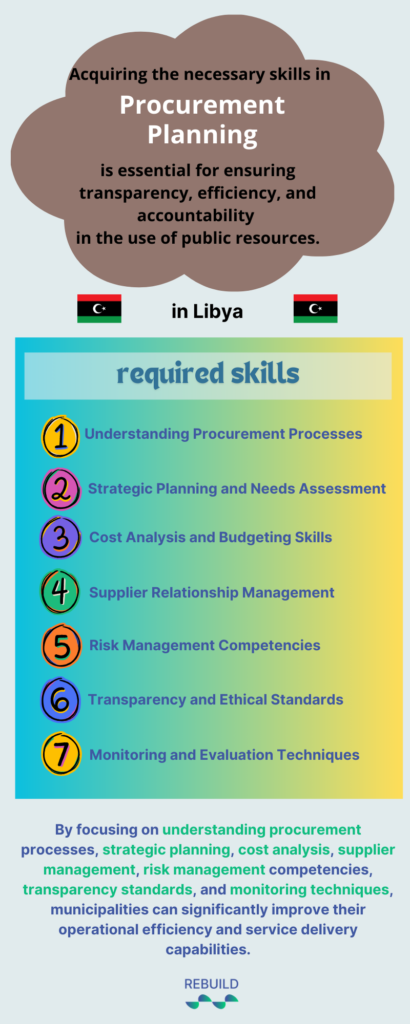 —
—
SEE ALSO
Public Finance Management in Municipalities
Public-Private Partnership: A Model for Sustainable Development in Libya
—


